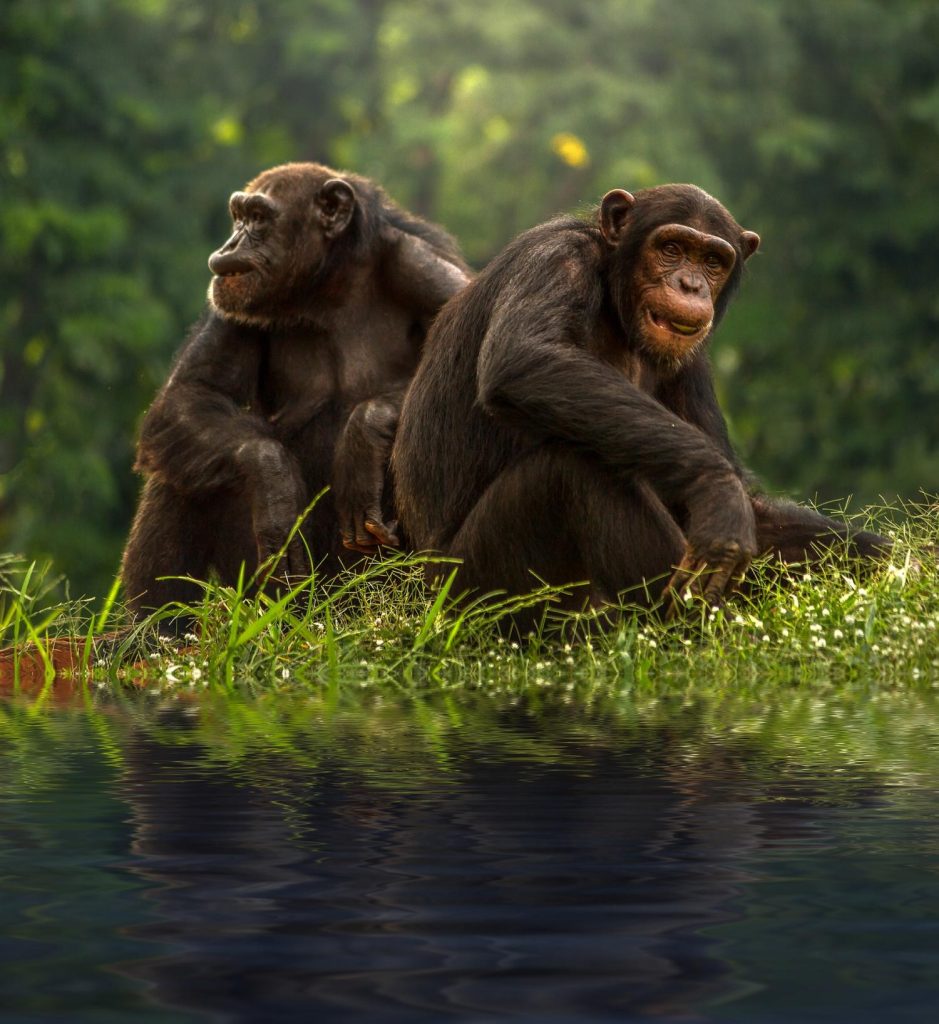Credit: CC0 Public Domain
A trio of psychologists from the Hebrew University of Jerusalem, the University of York and Duke University has found that great apes may sometimes engage in reciprocal food exchange under the right circumstances. In their study, reported in the journal Proceedings of the Royal Society B, Avi Benozio, Bailey House and Michael Tomasello conducted treat-giving experiments with captive chimpanzees and bonobos.
Prior research and anecdotal observations have shown that humans have a tendency to engage in reciprocal behavior—if a person lends a tool to a neighbor, that neighbor is more likely to share one in return. In similar fashion, people tend to be more likely to share food with others who have shared food with them in the past. Prior research has also shown that food sharing is rare in other animals as it is a competitive endeavor.
In this new effort, the researchers wondered if great apes would be more likely to engage in reciprocal food sharing if the circumstances were amenable to doing so. To find out, they designed and carried out an experiment involving food sharing with captive chimpanzees and bonobos.
Two apes were situated in adjoining cages with an opening between the cages to allow for sharing a treat. Treats were placed on a swiveling plate, allowing one volunteer to push some or all of a given treat to his or her neighbor. Under this scenario, few of the apes chose to share their treat. But when the researchers changed the circumstances such that the first ape could only get his or her treat by sharing with the other ape and then repeating the exercise with swapped roles, they chose to share approximately 70% of the time.
The researchers repeated the experiment with four-year-old children and found nearly the same results. They conclude that apes are fully capable of reciprocal food exchange given the right circumstances. They further suggest the likelihood that early humans had to downgrade their aggressive tendencies regarding food sharing in order to build stronger social ties.
More information: Avi Benozio et al, Apes reciprocate food positively and negatively, Proceedings of the Royal Society B: Biological Sciences (2023). DOI: 10.1098/rspb.2022.2541
© 2023 Science X Network
Citation: Great apes found to engage in reciprocal food exchange under the right circumstances (2023, May 3) retrieved 18 May 2023 from https://phys.org/news/2023-05-great-apes-engage-reciprocal-food.html
This document is subject to copyright. Apart from any fair dealing for the purpose of private study or research, no part may be reproduced without the written permission. The content is provided for information purposes only.

